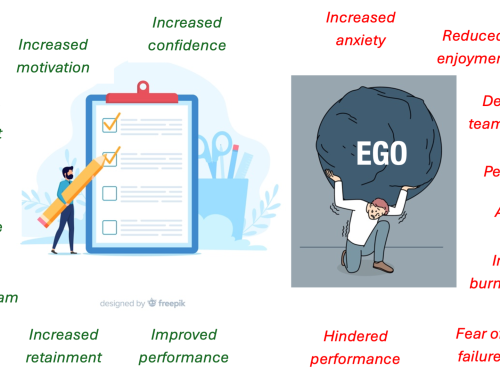More often than not I’m asked what keeps me motivated. Specifically, what motivates me in my work as a sport psychologist, or in my continuing education. It’s a good question, and something that I have thought about a lot through my studies! This is mainly due to the fact that to become a practitioner of sport psychology requires commitment to multiple years of training. From starting undergraduate until accreditation, the minimum route to takes 6 years. Add in a PhD (optional and not required) and the time in education is increased to a minimum of 9 years… In my experience, motivation is key.
I’ll tell you what keeps me motivated later on, but what is motivation?
It gets spoken about in all sorts of conversations, and not just in sport. But how much do we know about the concept and what does this mean attitudes towards training and competition?
Giving 100%
Courtesy of the Oxford English Dictionary, motivation is summarised as ‘the (conscious or unconscious) stimulus for action towards a desired goal. A motive’. Simply, it’s why we act the way we do and carry out actions. Simple, right?
Well, think again! As per all things to do with behaviour, this is too simple for us psychologists. We’re not even sorry…
Motivation determines all aspects of behaviour, as well as impacting on how we think, feel and interact with those around us. In sport, it’s often seen as a pre-requisite to athletes achieving their potential. It is also linked to success. How many times have you heard someone, like a commentator, questioning if a young athlete has the motivation to improve and reach their potential? Or attributing motivation to a team’s success after they have come close before?
It often happens when a young athlete shine on their first few matches for their club. It happened when Liverpool won the Premier League, a season after being beaten by Manchester City by a point. It’s often heard at the Olympics during medal ceremonies. I’m sure you can think of some examples from across sport.
You may also hear these people talking about commitment, straight from the commentator’s buzz word crib sheet. It’s easy to think motivation and commitment are the same thing. In fact, they are separate, but come together hand in hand. While motivation is why we act, commitment is how likely we are to follow a plan and continue with this plan even when the going gets tough. Therefore, motivation fuels commitment, and vice versa, providing us with the stimulus to carry on towards our goals.
So, what contributes to motivation?
Branching from self-determination theory, motivation can be explained through 2 key areas; –
- Intrinsic motivation – motivation from within us. Concerned with satisfying ourselves without the need for obvious external rewards. You participate because it is interesting, you enjoy it and there is no outside pressure to do so. Those intrinsically motivated might find themselves saying:
- “I enjoy playing”
- “I want to be a better player”
- “It relaxes me”
- Extrinsic motivation – motivation from external sources. This is not just about receiving a reward for participating, but also participating as a result of external pressure. Those who are extrinsically motivated may find themselves saying:
- “I earn money from it”
- “I participate to make my family proud”
- “The coach tells me I’m great”
Maybe you can already see what motivates you when you participate. Is it intrinsic or extrinsic? It’s important to note though that we are not one or the other. It’s perfectly possible, and equally normal, to be both intrinsically and extrinsically motivated. You may love your job and the people you work with (intrinsic), but you don’t mind getting paid to do it (extrinsic). This is the same for people who see themselves as just intrinsically or extrinsically motivated.
Go with the flow
The highest level of intrinsic motivation is flow state. Ever get that feeling when you’re doing something and time seems to fly without you knowing it? That’s flow state, the complete immersion in an activity to the extent that nothing else seems to matter ¹. This state is described as the perfect match between the demands of the activity and the ability/skill of the person doing it. This is important as those who regularly engage in flow state enjoy what they are doing more, and feel more fulfilled by the task. But, does this mean that intrinsic motivation is better than extrinsic motivators?
It depends who you are and the purpose of the motivation.
Let’s not be concerned about the number of splinters I have from the fence that I’m sat on. Instead, let me justify this. They are both important, and using both at the same time often yields the best results. Yes, intrinsic motivation is considered to be the healthiest type of motivation but intrinsic motivation doesn’t put food on the table. More so, extrinsic rewards show progress, a motivator in itself. So, utilising both in balance can be a great benefit.
On top of this, using extrinsic rewards are a great way to boost motivation, which can be useful as a coach. For example, a break from training after certain results, or a bonus from work after good performance.
Increasing motivation
Increasing motivation can take time but can be achieved using simple techniques.
- Goal setting
Setting ambitious but achievable goals can help cultivate encouragement and motivation. By setting short-, medium- and long-term goals we provide ourselves the framework to develop ourselves AND realistic markers which help keep motivation and commitment high. The best framework to use for this is the SMART method – Specific, Measurable, Attainable, Relevant and Time-based.
- Positive self-talk
A technique which encourages your inner voice to reinforce your self-esteem and other important aspects of your performance. By practising task-relevant, positive self-talk which treats you in a positive light, you are more likely to stick to a task you set out to complete, even if it is difficult.
- Extrinsic Rewards
As I mentioned before, the use of extrinsic rewards can increase motivation in the short-term and are a great way to give ourselves a boost when we are feeling less motivated. They also give us something to look forward to, something to get us through a task. How about a cheat day from the gym? Be careful not to treat yourself too much though, the benefit of extrinsic rewards wanes the more we receive them!
So, what motivates me?
Well, I enjoy what I do, and I enjoy engaging with real people, helping them to be the best they can. It’s the opposite to an office job, rather I aim to spend my time as much as I can in the field. As for extrinsic motivation, I earn a living from what I love doing. Simple as that. However, the reaction of new people when I tell them what I do, such as thinking I’m a ‘mind reader’ is certainly a funny experience, but I must stress that I can’t read minds, as much as I’d love to.
Enhancing motivation is, in its reduced state, is about changing our attitudes into a positive one. Developing the ‘can do’ attitude and encouraging the behaviours which facilitate this, including the creation of goals which monitor and motivate improvement, are key to this. I hope by highlighting what motivation is and how to improve it, you can use these tips to increase your commitment and therefore develop into a better athlete because of it.
Now you’ve read about Motivation, how about looking at another ‘What Is…’ article on Perfectionism? Being a perfectionist can be advantageous but also cause some problems when these tendencies get out of control. Have a read of what perfectionism is, the good and bad of perfectionism and how to keep the perfectionist behaviours under your control. Find it here!





[…] Increase in intrinsic motivation – doing things because of how they make you feel, not external reward […]